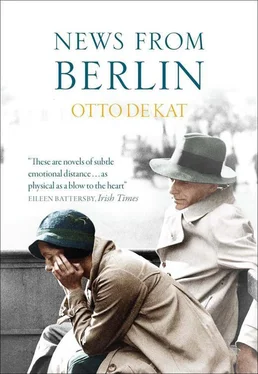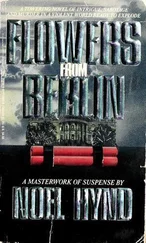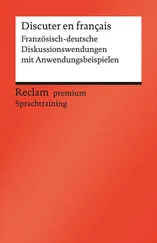Emma felt treated like a criminal, though she acted as if she were being driven to an appointment. These boys were not going to detect the slightest nervousness on her part. She peered out of the window with interest, twisted round for a backward glance, turned her head from side to side, opened her handbag with a casual air. The relaxed gestures of a day out sightseeing. It was imperative that she keep her rising panic under control. How extraordinary that the city was functioning again after the heavy bombardments, as if they had never happened. Traffic was as hectic as ever, with buses, trams, carts, motor cars, pavements milling with people. She saw a clock on the Potsdamer Platz, which was quite near where she used to live. It was still intact, hands pointing to a quarter past eleven. A telling detail. The clocks were right, it was business as usual, trains and trams on time, arrests made on schedule. Gestapo at the ready, motor running. It was clear the orders were for her to be picked up at eleven and brought in at half past.
“Emma Regendorf-Verschuur, where were you yesterday?”
The sombre man questioning her tried his best to be civil. A form of civility that could turn nasty in an instant. He resembled a boxer in a jacket, sleeves bulging with muscles, ready to let fly at any moment.
“In Geneva, with my husband and his head of department, Herr Adam von Trott of the Foreign Office. But why do you ask? And why am I here? I should like to telephone my husband.”
The man facing her said nothing. This could hardly be called an interrogation, it had more of a sequence of silences with the occasional query thrown in, a smirk, a sigh, a cigarette being lit, a weary gesture. And the constant tapping of a shoe on the floor.
Emma looked past the man into a tiny courtyard, or rather a shaft, which admitted some daylight. Such a sad little nook, overlooked by the architect, a hole with no purpose other than to deepen the gloom of the surroundings. The silence and murkiness of the building began to oppress her. She felt the fear welling up again. Everyone in Germany knew about this address, this place where she now was. Everyone avoided this street. The pavements were deserted, the entire premises radiated menace. How in heaven’s name could she make her escape, what kind of attitude should she take? She forced herself to think of her father, which calmed her down somewhat. All this was about him – she had realised that at the first question. Not about Carl or Adam, thank goodness. Not yet. Her father was safe in Switzerland, for the time being anyway. She had not thought of him as someone important enough to be watched by the Gestapo. Her father, whom she looked up to and dearly loved but never felt she really understood. The unusual relationship between her parents perplexed her periodically, but it remained a mystery. Harmonious for the most part, open-minded, alert, witty, but on the edges there was loneliness. They both seemed to have distanced themselves, or else outgrown each other.
“What is your father’s occupation in Switzerland?” the lugubrious man said, his tone making it clear that he did not expect her to tell the truth.
She replied curtly that he worked at the Dutch embassy in Berne and that she didn’t know exactly what his job entailed. “My father didn’t discuss his work much at home.”
The man leered at her. He probably didn’t discuss his work much at home either, Emma thought in a flash of grim amusement. The fear receded. She had to get away from there, and quickly.
They had made her wait for two hours in a sort of kitchen-cum-cloakroom, without anybody looking at her twice. People went in and out, fetched coffee, hung their coats up and generally ignored her. And there, in that poky space, she had been overwhelmed by thoughts of Watse, her dearest friend in Holland. Watse Hepkema, the boy she grew up with, the boy executed a few months ago by these people’s partners in crime. Watse, shot without trial for resisting. There, between those walls, she felt his death as if it were taking place in the next room. The news had left her stunned for days, unable to take it in. He had urged her so many times to get out of “that rotten city, that rotten country”, as soon as possible, and to tell Carl he had no business being there either. Watse had been her closest tie with Holland, and now he was dead. The images came back to her. Watse, arrested and shot, allegedly while trying to escape, not long after the Tour of 1941, which he had done on ice-hockey skates because his speed skates had been stolen – the blades on which no-one could touch him. When the wind was against them he would skate in front of her, he was as strong as a bear. Her memory of their last expeditions over the Sneekermeer was as fresh as yesterday, and his question continued to gnaw at the back of her mind: “Is Carl still working for those gangsters?” Yes, he was. Slowly, far too slowly, she had begun to realise that they were trapped. It was impossible for Carl to leave. There was no way he could emigrate, let alone switch sides. Every person on German soil was lost. Marriage to a German meant that she was German too, someone regarded with suspicion, someone who had to queue endlessly with a coupon for this and a coupon for that. Emma’s love of Carl was undiminished, but her sense of isolation weighed more heavily by the day. Friends from Holland stopped writing, relatives fell silent, only within Carl’s circle was there any respite. Germans, pigs? Not Trott, not Langbehn, not Haeften, but so many others: yes. Was it true about the German Foreign Office being a breeding ground of resistance, as Carl and Trott maintained? She found it hard to believe. Watse’s opinion was probably closer to the truth. He was a Frisian, and a skater beyond compare. She treasured her memory of skating with him over the frozen lakes of Sneek and Gaastmeer back in the winter of 1938, when they were practising for the Eleven Cities Tour. Not a soul ahead of them, clear ice as hard as marble. She had made the trip especially from Berlin. Carl had sputtered a little, but she had appealed to their bond of childhood friendship. The kind of bond that whenever little Emma was asked who her friends were, Watse’s was always the first name to come up. It was late in December that she received a telegram from him saying “ELEVEN CITIES TOUR, YOUR PRESENCE URGENTLY REQUIRED”. She couldn’t let Watse skate the whole course on his own, it wouldn’t be fair.
And so she went, three months after the phoney Munich Agreement, which professed peace, but which stank of war. It was a wrench leaving Carl behind, but Emma was delighted to escape the menaced and menacing city for a while.
They skated side by side through the polders towards the frozen Sneekermeer, Watse on speed skates, Emma wearing the traditional strap-on type, on which she was as graceful as she was swift. The low sun in their eyes, frosted reeds in tufts on the banks, a bridge here, a hole hacked in the ice for ducks there, they danced their way to Sneek. Same rhythm, same strokes, same style, although Watse slowed down a fraction. The first goal was reached without any pause or hesitation: the Pavilion on the edge of the Sneekermeer. They had gone to sit by the window overlooking the lake, with skating figures in the distance silhouetted against a cloudless sky: a frozen landscape resembling a painting by Avercamp or the meticulous Schelfhout, masters of the Dutch winter scene. Watse had looked at her searchingly, it was such a long time since they had spoken.
“How are things over there, Emma, are you coping alright? Is Carl still working for those gangsters?”
Subtlety was not his trademark. Honesty was. A man of few words, but when he did say something it was usually worth hearing.
His question sounded like a pistol shot. Emma knew he liked Carl well enough; he had come to visit them once in Dahlem, and they had agreed on many issues. Carl had told him about the efforts he and Trott were making to get in touch with whoever was against the Nazis. Watse had left, taciturn as ever, and downcast.
Читать дальше












